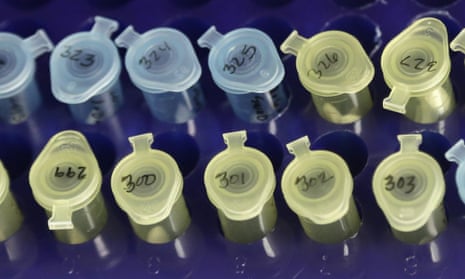The nearly 80,000 rape kits taken from sexual assault victims that have gone untested for so long haven’t just been ignored for financial reasons. Yes, local police departments sometimes lack resources - but what too many are also missing is the ability to treat victims of sexual violence with respect.
After years of sitting on dusty shelves - shamefully ignored by police departments across the country - tens of thousands of rape kits will finally be tested. On 10 September, Vice President Joe Biden and New York City District Attorney Cyrus Vance announced a $79m initiative to start to whittle down the backlog.
Vance said: “I’m saying today to all the women awaiting justice, you are not forgotten ... we will prevent future rapes by taking rapists off the streets, but the grants will do more than test kits - they will provide closure for victims and families.”
But will they? Getting evidence from sexual assaults properly tested and processed is an undoubtedly an important part of the criminal justice system. But fully processed kits are not a magic bullet to putting rapists in jail, and they certainly don’t make amends to victims who have been poorly treated and their cases ignored.
When Michigan State University professor Rebecca Campbell conducted a multi-year study of untested rape kits in Detroit, for example, she reported that it wasn’t just “chronic resource depletion” that led to the backlog - but “police treating victims in dehumanizing ways.”
“[L]aw enforcement personnel regularly expressed negative, stereotyping beliefs about sexual assault victims. Victims who were assumed to be prostitutes were considered to be at fault for what had happened to them. Adolescents were often assumed to be lying, trying to avoid getting into trouble with their families by concocting a false story about being raped. Friends/acquaintances had got‐what‐they‐got because they had chosen to associate with the perpetrator. The fact that all of these victims had endured a lengthy, invasive medical forensic exam seemed to carry little to no weight.”
This shouldn’t be an entirely shocking finding - rape victims have long complained about terrible treatment at the hands of police and the criminal justice system, and we know that rapists overwhelmingly go unpunished in the United States. But there’s more than just a moral issue at hand here. When victims are treated poorly by law enforcement, they’re less likely to trust them with their stories - and they’re less likely to come back. And when victims don’t come back, the police simply don’t follow through on their cases.
This summer, for example, when Louisville Metro Police looked at why some of their rape kits went untested, Special Victims Unit Lieutenant Carolyn Nunn told local media that “a lot of our victims don’t want to go forward.” Without victims’ participation, the police won’t move forward with the case.
Lynn Hecht Schafran, director of the National Judicial Education Program (NJEP), which trains law enforcement officials to properly handle sexual assault cases, tells me that testing all rape kits is crucial, but it’s only a first step. “Even when a kit is tested, law enforcement often fails to forward the case for prosecution, and prosecutors often fail to go forward with the few cases referred to them,” she said.
Hecht Schafran also points out that a tested rape kit is not proof enough to put rapists away – it’s a piece of evidence that helps aid in prosecution. But too often – because of prevailing myths about rape and systemic victim-blaming – cases don’t even make it that far.
“Because few law enforcement officers and prosecutors are educated about the way victims behave in traumatic situations, their attitude toward victims is often disbelief and disdain,” Hecht Schafran says. That’s in part why NJEP creates curricula for police, judges, prosecutors. “We know that when this education is made available to these gatekeepers it is transformative,” she says.
If we want women to go through the grueling process of pressing charges if they are raped, we need to ensure that police and prosecutors aren’t just filling out forms and testing kits. They need to be thinking about ways to make victims feel more comfortable in an already-horrible situation, and that those in positions of power are trained, empathetic and leaving their biases at the door. And that’s going to a take a lot more than money to fix.

